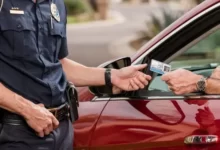Most people would agree that their vehicles are their lifeline to the world, by which they get to work, run errands and get to wherever they need to go. Of the 228 million drivers in America, 22 percent concede that they have committed minor traffic violations. When drivers are caught by law enforcement committing such offenses, like moderately speeding or running a red light, they are generally given a warning or a ticket that comes with a small fine.
Other offenses have harsher penalties. Millions have had their driver’s licenses suspended for any number of reasons. Getting caught driving after your license has been suspended can set back the process of ending the suspension and land drivers in serious trouble. In Florida, driving on a suspended or revoked license is a criminal offense.
How Do You Arrive at a Suspended License?
In Florida, there are many reasons why the Department of Highway Safety and Motor Vehicles might suspend a driver’s ability to legally operate a vehicle. Points suspensions involve accruing minor infractions such as excessive speeding until they qualify the driver for suspension. Habitual offenders often are given license suspensions.
Driving while under the influence of alcohol will certainly result in a suspended license, as could a DUI refusal and a plea to racing on a highway. If you are found to be driving under the influence of drugs, you certainly risk a suspended license.
Not all are related to driving-specific offenses. For instance, a license can be suspended for child support delinquency, failing to pay court fees, drug or petite theft convictions and failure to maintain proper insurance.
What Happens if You’re Caught Driving With a Suspended License?
If you are caught driving with a suspended license in Florida, you could face 60 days in jail and a fine of $500. This is for a first offense and it should be noted that part of the language in the statute speaks to a person’s knowledge of the suspension, revocation or cancellation. If you can prove that you were unaware, you could escape the consequences.
A second offense may be charged as a first-degree misdemeanor, which could result in one year in jail. A third offense may result in felony charges, resulting in five years in prison and a maximum fine of $5,000. If three offenses occur within five years, you will be designated as a habitual traffic offender, which results in a five-year license revocation. At this point, the driver will be unable to even qualify for a hardship license.
How Long Does a Suspended License Last?
The lengths of suspensions vary, depending on the offense or offenses. For your first offenses that lead to suspension, the license will be revoked for a minimum of 180 days and a maximum of one year. A second offense, within five years of the first, could lead to a five-year revocation. At this point, you may be eligible for a hardship license after one year.
If you have a third offense go on the books within 10 years, you face a minimum of 10 years revocation. You may be eligible for hardship reinstatement after two years. A fourth conviction brings with it the likely threat of permanent loss of license, with no ability for hardship reinstatement.
If you are convicted of murder with a motor vehicle, you face mandatory permanent revocation and no hardship reinstatement option. For a conviction of DUI manslaughter, your license will be permanently revoked. It may be reinstated after five years, if you only had a single DUI conviction.
The most expedient way to get your license back after it’s been suspended is to follow the letter and the spirit of the law. Following the rules will certainly get you back on the road quicker than getting pulled over while driving on a suspended license, which will only send you back into the courtroom, rather than the driver’s seat.



